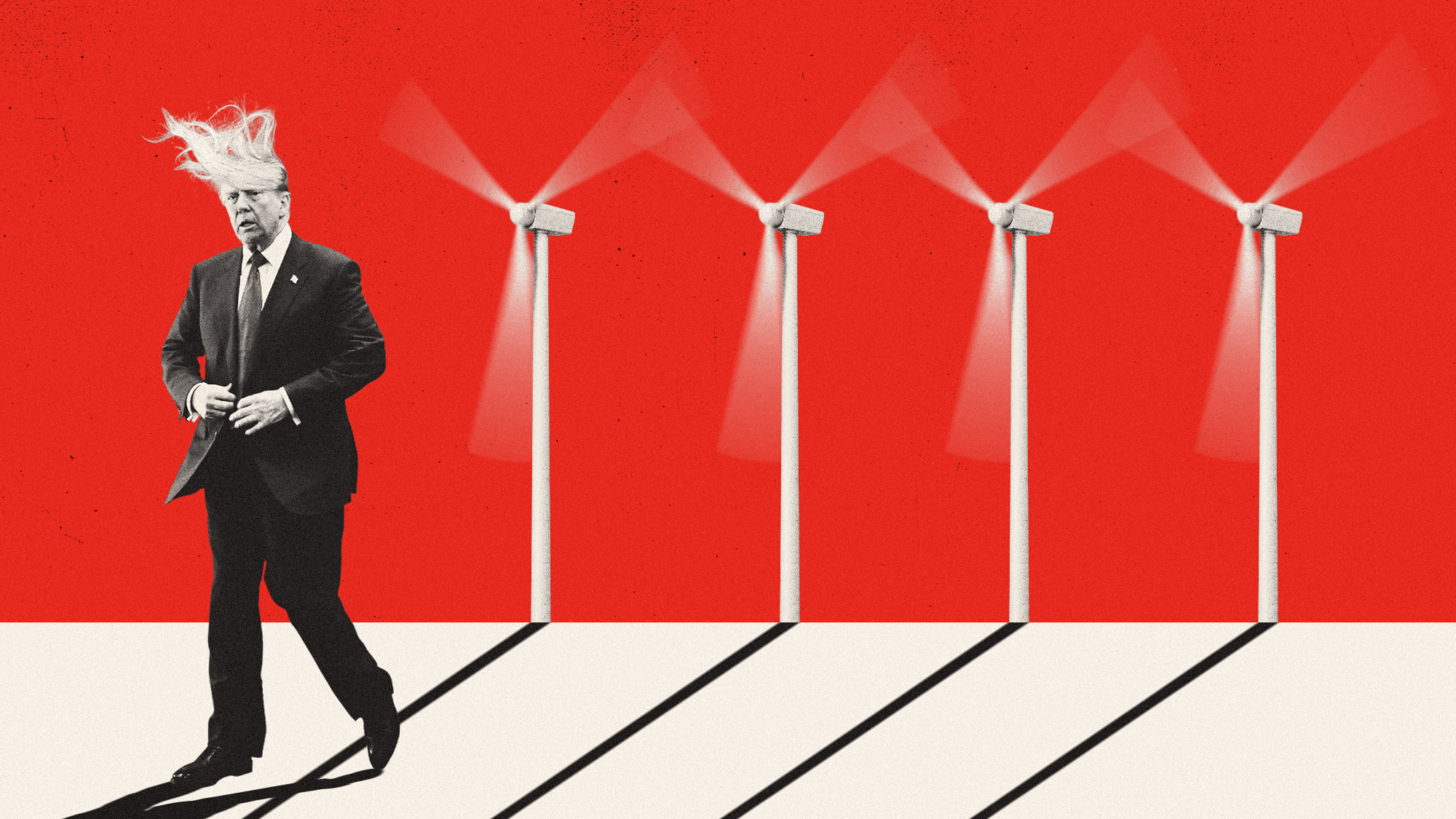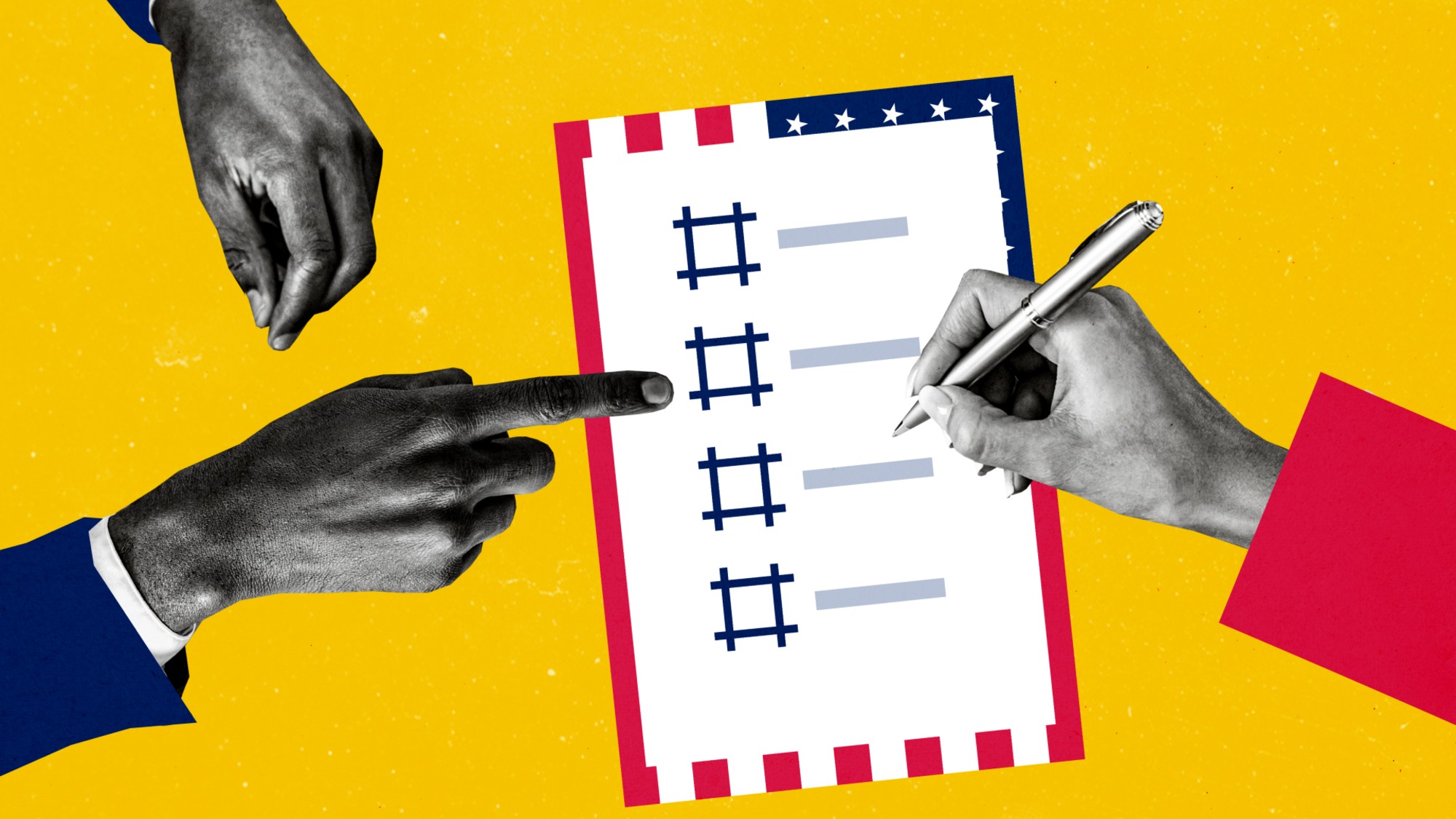Trump wants to expand US energy. Why does he oppose wind?
It's a cheap source of new electricity, after all


A free daily email with the biggest news stories of the day – and the best features from TheWeek.com
You are now subscribed
Your newsletter sign-up was successful
President Donald Trump campaigned on a promise to "unleash" American energy production. He's "desperate for more energy," said The Washington Post. But that's only long as it's "not from the wind." After Trump signed an executive order last week halting new leases for offshore wind projects and ordering executive branch officials to review existing leases, economists are left puzzled, as the decision threatens burgeoning wind power projects in Delaware, Maryland, Massachusetts and New Jersey.
What did the commentators say?
Trump's anti-wind stance is "discordant with this overall posture of 'build, baby, build,'" said Ben Cahill, an energy markets expert at the University of Texas, to the Post. And wind energy has long been the "cheapest source of new electricity in the U.S.," said Adele Peters at Fast Company. Trump would have Americans believe otherwise — he has called wind the "most expensive form of energy that you can have, by far." The president has said that wind turbines cause cancer (they don't) and kill birds (which is true, but not in the numbers he suggests). Instead, Trump's antipathy to wind farms appears to be more aesthetic. He opposed a wind farm near land he bought in Scotland in 2006, calling it an "ugly cloud hanging over the future" of the property. Whatever the reason for his wind hatred, it won't help Americans. Restricting wind power will "increase consumer energy bills," said the American Clean Power Association.
The order may also be bad politics. "The five states with the largest share of wind power in America are red states," said Thomas Friedman at The New York Times. Those states generate "at least a third of their power from wind." Opposing wind also puts America behind China in the race to make more energy. Beijing doesn't care where power comes from as long as it is "abundant, efficient, cheap and clean." Wind power fits the bill. Trump's anti-wind stance will "definitely help make China great again."
The Week
Escape your echo chamber. Get the facts behind the news, plus analysis from multiple perspectives.

Sign up for The Week's Free Newsletters
From our morning news briefing to a weekly Good News Newsletter, get the best of The Week delivered directly to your inbox.
From our morning news briefing to a weekly Good News Newsletter, get the best of The Week delivered directly to your inbox.
What next?
Trump's order will probably disrupt the domestic American wind industry, said CalMatters. Experts say that "consistent public policy" is needed for private companies to make big investments in turbines, leases and other items necessary to expand wind power's potential. The wind industry "abhors uncertainty," said Ken Alex, the director of Project Climate at the University of California, Berkeley. Developing a wind farm "takes time, it takes resources and it takes consistency."
But other renewable energy producers are "relatively sanguine" about Trump's anti-wind order, said CNBC. The global market is already moving toward cheap sources of power like wind and solar, while the demand for electricity — for everything from electric vehicles to AI data centers — is only increasing. The market is in the "best moment for electrification," said Ignacio Galán, the executive chairman of Iberdrola. The transition away from fossil fuels is "absolutely unstoppable."
A free daily email with the biggest news stories of the day – and the best features from TheWeek.com
Joel Mathis is a writer with 30 years of newspaper and online journalism experience. His work also regularly appears in National Geographic and The Kansas City Star. His awards include best online commentary at the Online News Association and (twice) at the City and Regional Magazine Association.
-
 Political cartoons for February 15
Political cartoons for February 15Cartoons Sunday's political cartoons include political ventriloquism, Europe in the middle, and more
-
 The broken water companies failing England and Wales
The broken water companies failing England and WalesExplainer With rising bills, deteriorating river health and a lack of investment, regulators face an uphill battle to stabilise the industry
-
 A thrilling foodie city in northern Japan
A thrilling foodie city in northern JapanThe Week Recommends The food scene here is ‘unspoilt’ and ‘fun’
-
 How are Democrats turning DOJ lemons into partisan lemonade?
How are Democrats turning DOJ lemons into partisan lemonade?TODAY’S BIG QUESTION As the Trump administration continues to try — and fail — at indicting its political enemies, Democratic lawmakers have begun seizing the moment for themselves
-
 ICE eyes new targets post-Minnesota retreat
ICE eyes new targets post-Minnesota retreatIn the Spotlight Several cities are reportedly on ICE’s list for immigration crackdowns
-
 Judge blocks Hegseth from punishing Kelly over video
Judge blocks Hegseth from punishing Kelly over videoSpeed Read Defense Secretary Pete Hegseth pushed for the senator to be demoted over a video in which he reminds military officials they should refuse illegal orders
-
 How did ‘wine moms’ become the face of anti-ICE protests?
How did ‘wine moms’ become the face of anti-ICE protests?Today’s Big Question Women lead the resistance to Trump’s deportations
-
 Judge blocks Trump suit for Michigan voter rolls
Judge blocks Trump suit for Michigan voter rollsSpeed Read A Trump-appointed federal judge rejected the administration’s demand for voters’ personal data
-
 Trump’s plan to ‘nationalize’ US elections
Trump’s plan to ‘nationalize’ US electionsTalking Points States oversee voting. Will Republicans take over?
-
 Will Trump’s oil push end Cuba’s Communist regime?
Will Trump’s oil push end Cuba’s Communist regime?Today’s Big Question Havana’s economy is teetering
-
 Why is Tulsi Gabbard trying to relitigate the 2020 election now?
Why is Tulsi Gabbard trying to relitigate the 2020 election now?Today's Big Question Trump has never conceded his loss that year
